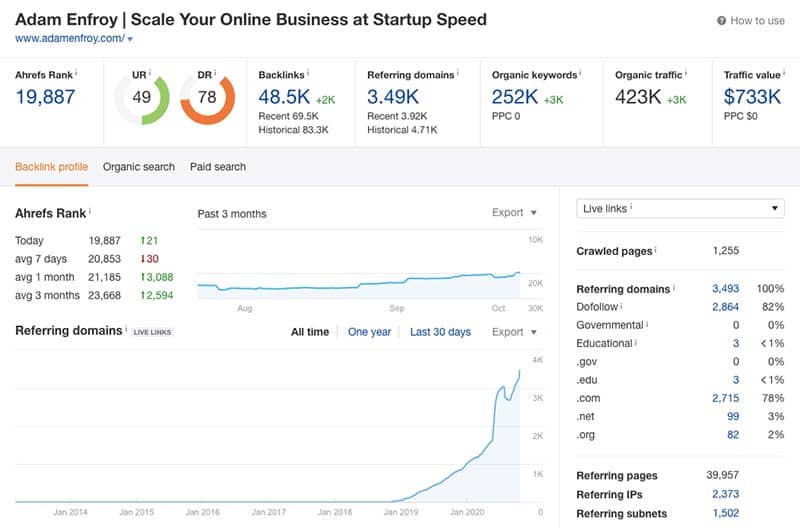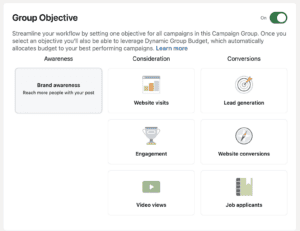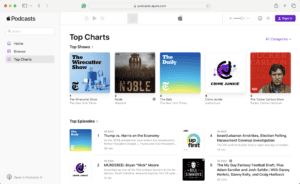When people think of content marketing, blogging usually comes to mind.
But there’s a form of content marketing that is virtually untapped.
I’m talking about building website traffic from a podcast.
A study by Edison Research shows that over 100 million Americans listen to podcasts every month. And the number is rising.
The rising popularity of podcasting indicates that it’s a viable channel you can use to communicate with your audience online.
That’s why if you haven’t yet, you should start a podcast. And once you do, you need to find ways to build your audience not just on podcast distribution sites like iTunes and Spotify, but also on your own website.
4 Reasons You Need to a Podcast Website
First, consider these benefits you get from starting a podcast website.
Tap Into a New Audience
Not everyone likes reading a blog post or watching a video. For some people, listening to a podcast on a commute or while working out is their preferred way of consuming content. A podcast will help you tap into this demographic and help you expand your audience. Similarly, a podcast website can help you attract an entirely new audience via search engines and social media.
Establishes You As an Authority
One of the biggest advantages of a podcast website is that it helps establish you as an authority in your niche. By sharing valuable content, you become a trusted resource in your industry.
Monetization Opportunities
Just like starting a blogging business, podcasting is a great way to build a digital enterprise. There are many monetization strategies you can use that range from sponsorship deals to subscription models, affiliate marketing, and more.
Not Many People Are Doing It Well
There are very few brands that have both a high-quality website and podcast. They either do one well or the other. If you can be the exception to this rule, you can scale your audience reach by getting subscribers from both podcast distributors like iTunes and Spotify, as well as Google searches, social media, and more.
But for you to reap these benefits of podcasting, you need an engaged audience.
From the very start, you need to know how to grow and scale traffic to your podcast website.
Podcast Hosting vs. Podcast Website
Before we dive into the tactics you can use to grow your podcast, let’s quickly look at what a podcast website is.
First off, a podcast website is not a podcast hosting platform.
Here’s the difference between the two:
Podcast Hosting

Like your blog hosting platform, this is where all your audio files are stored on the web for your audience to access them. A podcast hosting platform also provides an RSS feed for easy distribution of your podcast to podcast directories.
Podcast Website
A podcast website is your base of operations for your podcast. Because you have total control over it, you can build your brand and market your podcast in your own way.
Let’s face it, as long as it is not your platform, you can’t plan your future on it.
That’s why having a podcast host that also provides a dedicated podcast website is a must to ensure that you’re in full control of your podcasting business.
And if you’re wondering, regular audio files are large and most popular website builders don’t offer the bandwidth needed to support podcasting.
Even if they were to offer it, it would mean you pay a whole lot more to have enough bandwidth.
Having a dedicated podcast website gives you an edge as you can leverage it to attract more visitors to your podcast from other avenues like SEO and social media.
Let’s cover what you need to succeed with a podcast website.
Action
Read to start your own podcast? Learn the nitty-gritty details of starting your own show in our comprehensive guide. Learn how to start a podcast.
Treat Your Podcast Website Like a Startup
A podcast website is a crucial ingredient in growing your podcast audience. But for it to do that, you must know how to grow and scale traffic to it.
And to do that, you must treat it like a startup.
Many times, content creators fail to grow their following because they take a casual approach to content creation and promotion.
Treating your podcast website like a startup simply means making every decision based on market factors. Your market research must include:
Pick a Niche with Monetization Opportunities
One of the biggest mistakes many make when starting a podcast is to build it around topics they’re just passionate about.
While it’s good to follow your passions, you must have a vision to monetize your podcast as well. Most podcasts that are merely based on hobbies don’t have a long lifespan. That’s because passion can only motivate you so far.
However, building your podcast using a business model will give you the motivation and structure you need to establish a podcast that will last. After all, what better motivation can there be than being paid to do something you love.
To find a niche you can monetize, you must study the market and base your niche selection on business factors that include:
- Audience revenue potential. This is how likely it is to monetize an audience and the estimated revenue you can generate. For example, the average household income of podcast listeners is between $100k-$150k, making it a great demographic to market to.
- Affiliate marketing potential. This is the potential for your niche to have affiliate marketing opportunities. Are there products you can promote both via your podcast and also on your website?
- Ad sponsorship potential. Can the audience you capture be large enough to get sponsorship deals with top brands?
Remember, your podcast is a business. As such, you must make all decisions like an entrepreneur, especially the first one of finding the right niche.
Find an Audience You Can Monetize
If you want to scale your podcast website like a startup, you must find an audience you can monetize.
Whether it’s through sponsorship deals or purchasing your affiliate offers, the right audience to attract consists of people you can turn into customers. When people invest in something, they become more committed to it.
That’s why the best way to lay the foundation for your podcast’s growth is proper audience research.
When you find the right audience, they’ll also help you reach like-minded people by spreading the word about your podcast to their family and friends.
Conduct Competitor Analysis
Another form of market research you must conduct is competitor analysis. This involves checking out what your competitors are doing to drive traffic to their podcast websites.
For example, you should study:
- The type of content they produce
- Their content promotion strategies
- Strengths and weaknesses
- Monetization strategies
Knowing your competitors is crucial as it will help you develop a growth strategy that will outperform them.
With these two essential factors sorted, you can now put your marketing workflow and traffic generation strategy into play.
Tips for Growing and Scaling Traffic to Your Podcast Website
Scaling your podcast website’s traffic quickly isn’t complicated. It’s simply a matter of implementing the right growth strategies.
Let’s quickly look at the strategies you must implement to grow and scale traffic to your podcast website.
Design a Keyword Research Driven Strategy
First, most of the traffic to your podcast website will come from your blog.
And blogging and podcasting have two very distinct strategies.
While a podcast grows by building an audience and providing regular “updates” in the form of episodes, blogging is different.
Capturing blog traffic is not just sending blog “updates” to your readers. Instead, it is an evergreen keyword research driven process that constantly attracts new readers based on Google searches.
It looks like this:
Google search => Your Podcast Website => Podcast Subscriber
Every blog post that you write needs to target one specific Google search based on the information your audience is looking for.
For example, let’s say that you started a podcast about making passive income online.
While your podcast can talk about different passive income strategies and users can find your podcast organically on iTunes, if you had a podcast website they could simultaneously find you from a Google search.
For instance, you could write a blog post about the “15 Best Passive Income Ideas of 2021.”
Then, when a random Google user types in “passive income ideas”, your blog could appear in the search results. They could read your article with your 15 ideas, and then click on your podcast link to become a subscriber.
Podcast websites open up another avenue to attract traffic to your podcast, primarily from Google.
Creating a strong content strategy that works involves the following:
- Keyword research. To create podcast content your audience will find and enjoy, you must know the keywords they use in their Google searches. If you don’t have time to do this yourself, consider hiring a freelance SEO expert. You can use a tool like Ahrefs or Google Keyword Planner to view keywords based on monthly search volume, keyword difficulty, and more. You can read my post on keyword research for the two main types of keywords to target based on transactional and informational search intent.
- Competitor research. Not only will this help you understand what works in your niche, but it will also help you find content gaps you can take advantage of. Research your competitors to see what their podcast website is ranking for on Google. Deconstruct the competition to get new content ideas and build your content calendar.
- Understand search intent. Search intent refers to the reason behind a search query. Understanding it helps you focus on keywords that have a monetary value. For example, if you want to make money with your podcast website, you need to understand the difference between informational and transactional search intent.
- A content calendar. Armed with information and data you’ve gathered, create topics around subjects your listeners are most passionate about. Create a visual content calendar to schedule when you’ll publish each podcast and each new blog post. This can easily be done in a simple Google Sheet.
Contrary to popular belief, podcasting isn’t just about discussing a topic you feel inspired to talk about in that episode. For your podcast to succeed, you must strategically plan your podcast episodes and website content.
Growth is About Scaling Your Processes
One misleading piece of information often told in content marketing circles is that to grow a blog you just need to keep writing more content.
It’s the same in podcasting. While you have higher odds of succeeding by publishing a lot of podcast episodes, there’s more to running a podcast business than just the episodes. You need to find ways to scale your processes.
For example, when I started my blog, I worked 50 hours a week at my full-time job and had limited time to work on my blog.
The only way I could successfully scale was to give up the idea that I could do everything myself.
I devised some systems to help me scale by achieving three things:
- Obtain quality backlinks to build my blog’s Domain Authority (DA).
- Accelerate my organic traffic growth.
- Monetize my site within 3-6 months.
I treated my blog like a business from day one. To achieve this, I had to outsource some aspects of my blogging processes. These were aspects like content writing, link building outreach, design, and UX.
The same applies to your podcast if you’re to scale the traffic to your podcast website. You must outsource what you can so you focus on the essentials.
That’s how you can ensure that you scale without compromising on the quality of your podcast production.
For example, you could hire a freelancer to:
- Write blog posts for your podcast website.
- Create social media posts to promote your podcast episodes.
- Be your producer and deal with the live recordings and audio editing.
- Manage your YouTube channel.
Building a profitable podcast takes a lot of time and work, so just remember you don’t have to do everything yourself. Be a strategic business owner and scale by pulling levers that make the most meaningful impact.
Build Strategic Relationships that Lead to Growth
Business is about building meaningful relationships.
And your podcast is a business, so the same principle applies. If anything, growing a podcast needs more relationship building with other podcasters and influencers in your niche. The reason building meaningful relationships is vital to growing and scaling traffic to your podcast website is that it takes relationships to succeed at:
- Link building
- Guest posting
- Organic social media marketing
Let’s take a deep dive into each of these and see how they’ll help you drive traffic to your podcast website.
Link Building
Link building must be an essential part of your strategy to grow your podcast website. That’s because backlinks are a vital factor search engines consider when ranking sites. The more visible your podcast website is on search engine results pages (SERPs), the easier it is for people to discover your podcast.
Another reason backlinks are crucial to scaling traffic to your podcast website is they help you tap into the traffic on the website your backlink is on.
To put this strategy in perspective, here’s the impact backlinks had on my website’s traffic:

In short, backlinks are essential for podcast SEO. You have to build them to grow and scale your podcast website’s traffic.
Treat your podcast website like a startup and employ backlinks as part of your growth strategy.
Guest Podcasting
Another reason you must work on building relationships is that they’ll help you get guest podcasting opportunities. This is where you get to be featured on other podcasts.
Here’s one I did back in 2019 when I just started my blog and made my first $10k in 90 days. Today, my blog brings in over $80k per month and guest blogging and guest podcasting is a part of that.

Guest podcasting helps you:
- Build authority
- Have a greater reach
- Get backlink opportunity
- Get more traffic
To get these benefits of podcasting, it all starts with networking and building relationships with other podcasters. If you produce great content, invitations to be a guest will start flowing.
Other ways of getting guest podcasting opportunities include:
- Reaching out to podcasts with a similar audience
- Using tools like MatchMaker that connect podcasters
- Being active on social media groups
Besides guest podcasting, you can also consider guest posting on other sites. Make sure to get a link back to your podcast website in the post or in the author bio when you do.
Social Media Marketing
Social media has become an invaluable tool for promoting content. Again, for your social media strategy to drive traffic to your podcast website, you must build relationships with influencers. They will help spread the news of your podcast with their networks.
Besides influencers, you must also build relationships with your audience on social media. According to GetVoIP, you should seek to humanize your communication. Engage with your audience and build a community.
Social media is also a great place to generate leads for your podcast. You can do this by:
- Adding a link to your podcast website in your profile
- Running contests to using your targeted landing pages to collect email addresses
- Tagging influencers you mentioned in an episode
- Promoting the show by using different interactive video tools like webinar software, digital course platforms, video conferencing, etc.
If you can do this well, your followers will become your most powerful marketing team. They’ll promote your podcast website to their network.
Without relationships, scaling the traffic to your website is virtually impossible.
After all, your content won’t promote itself. You need to build a network of engaged people who will help spread the word about your podcast website.
Executive Summary
Growing and scaling the traffic to your podcast is not as difficult as it may seem. You just have to be strategic about the way you approach it.
You must understand that scaling doesn’t mean churning out tons of podcast episodes. It’s a matter of building systems that will help you be more efficient in your content creation, promotion, and monetization.
Creating a successful podcast isn’t just about publishing new episodes. You also need to:
- Build a podcast website to drive traffic to.
- Create keyword-research driven blog posts to get Google traffic.
- Push those readers to become podcast subscribers.
- Perform guest blogging and guest podcasting to build your authority.
The good news is you don’t have to do it alone. By outsourcing a few components of your podcasting business, you get to become the CEO of your podcast, not just the host.
About the author
With over 500,000 monthly readers, Adam Enfroy’s mission is to teach the next generation of online entrepreneurs how to scale their influence at startup speed.




Comments are closed.